Spice Up Your Life: The Ultimate Guide to Hot Chili Pepper Sauce – From Mild to Mouth-Blazing!
Love a little (or a lot) of heat in your food? Then you're already familiar with the magic that is hot chili pepper sauce. Whether it's adding depth to tacos, fire to wings, or just giving your morning eggs a zesty kick, this condiment is more than just spice—it's flavor, culture, and personality in a bottle.
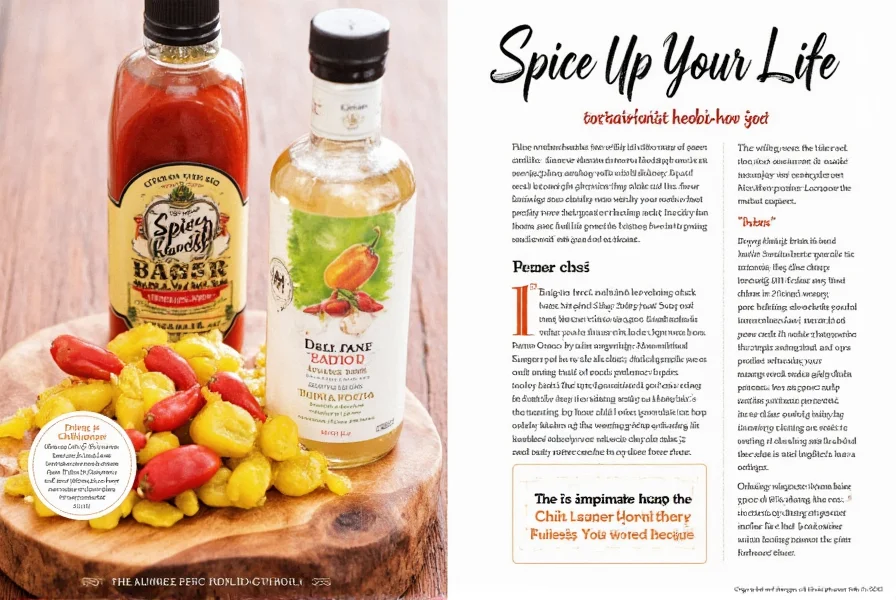
Table of Contents
- What Is Hot Chili Pepper Sauce?
- Understanding Heat Levels & Scoville Units
- Top 5 Types of Hot Chili Pepper Sauces You Should Try
- Creative Culinary Uses Beyond Tacos and Wings
- Make It Yourself: DIY Hot Chili Pepper Sauce
- Hot Chili Pepper Sauce Buying Guide: What to Look For
- Conclusion: Fire Up Your Flavors Today!
What Is Hot Chili Pepper Sauce?
At its core, hot chili pepper sauce is a liquid seasoning made from chili peppers, vinegar, salt, and often other spices or sweeteners. While recipes vary widely across cultures, all versions share one thing in common: they pack a punch.
Sauces can be thin and vinegary, thick and smoky, or even creamy—each bringing its own unique flair to the table. From Louisiana-style sauces like Tabasco to Mexican adobos and Caribbean scotch bonnet blends, there’s a flavor profile to match every taste bud's desire.

Understanding Heat Levels & Scoville Units
If you’ve ever wondered why one sauce scorches your tongue while another barely registers, it comes down to the Scoville scale—a measure of capsaicin concentration in peppers.
| Pepper | Scoville Heat Units (SHU) |
|---|---|
| Bell Pepper | 0 SHU |
| Jalapeño | 2,500–8,000 SHU |
| Habanero | 100,000–350,000 SHU |
| Ghost Pepper | ~1,000,000 SHU |
| Carolina Reaper | 1,400,000–2,200,000 SHU |
Most commercial sauces fall somewhere between 100 and 100,000 SHU, but extreme sauces push well beyond that. So before you take a swig straight from the bottle, know what you’re dealing with!
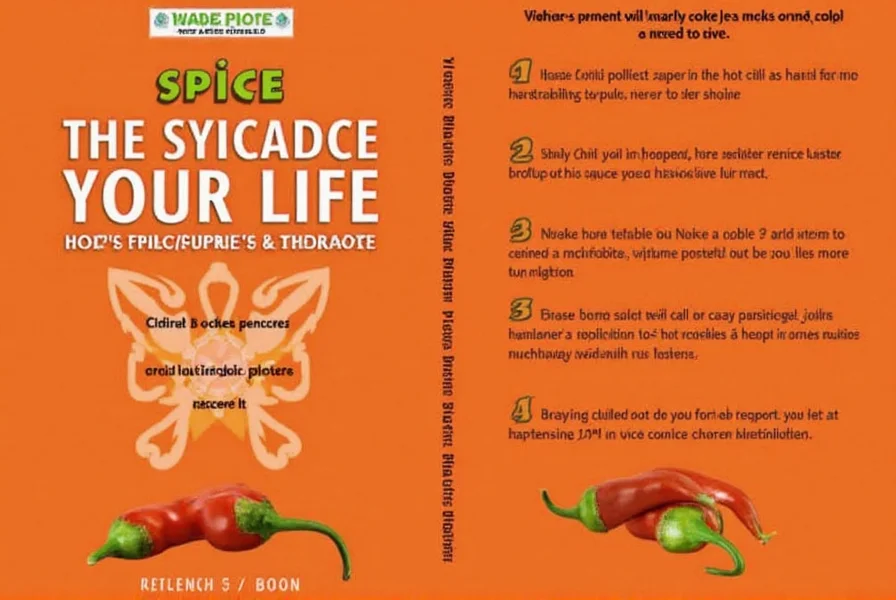
Top 5 Types of Hot Chili Pepper Sauces You Should Try
The world of hot chili pepper sauce is as diverse as it is delicious. Here are five popular styles to explore:
- Tabasco: A classic Louisiana-style sauce made from aged red peppers, vinegar, and salt. Tangy, bright, and medium-hot. Perfect for Bloody Marys and po'boys.
- Sriracha: Creamy, garlicky, and slightly sweet. Made from sun-ripened chilies and used globally—from noodles to burgers.
- Adobo: Thick, smoky, and rich. Often includes chipotle peppers in a tangy tomato base. Great for marinades and soups.
- Harissa: North African paste turned sauce when mixed with oil. Spiced with cumin and coriander, perfect for lamb or couscous.
- Ghost Pepper Sauce: Not for the faint-hearted. Smoky and intense with searing heat. Ideal for chiliheads looking for a challenge.
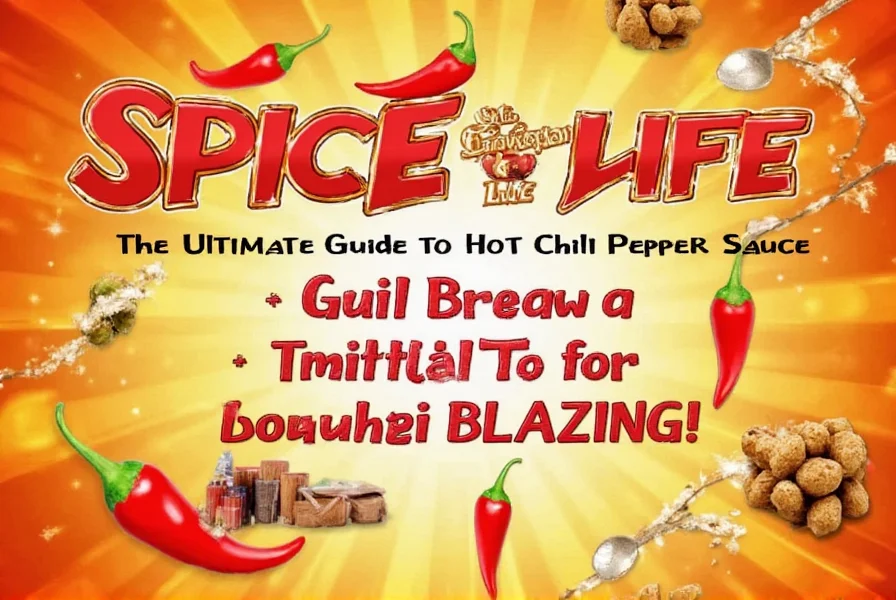
Creative Culinary Uses Beyond Tacos and Wings
We love a good taco night, but why stop there? Here are some unexpected ways to use hot chili pepper sauce:
- Pizza drizzle: Add a few drops over pizza after baking for a fiery finish.
- Stir-fry boost: Mix into soy-based stir-fries for an instant kick.
- Gravy upgrade: Stir into gravy for fried chicken or mashed potatoes.
- Chocolate pairing: Some artisan sauces pair surprisingly well with dark chocolate!
- Cocktail enhancer: Add a dash to margaritas or bloody marys for a bold twist.

Make It Yourself: DIY Hot Chili Pepper Sauce
Ready to roll up your sleeves? Making your own hot chili pepper sauce is easy, customizable, and cost-effective.
Simple Homemade Chili Sauce Recipe
- 1 cup fresh or dried chili peppers (jalapeños for mild, habaneros for wild)
- 1 clove garlic
- 1 cup white vinegar
- 1 tsp salt
- Optional: sugar, lime juice, or herbs for extra flair
- Roast peppers if using fresh; soak if using dried.
- Blend all ingredients until smooth.
- Simmer for 10–15 minutes.
- Strain and bottle. Store refrigerated for up to 3 months.
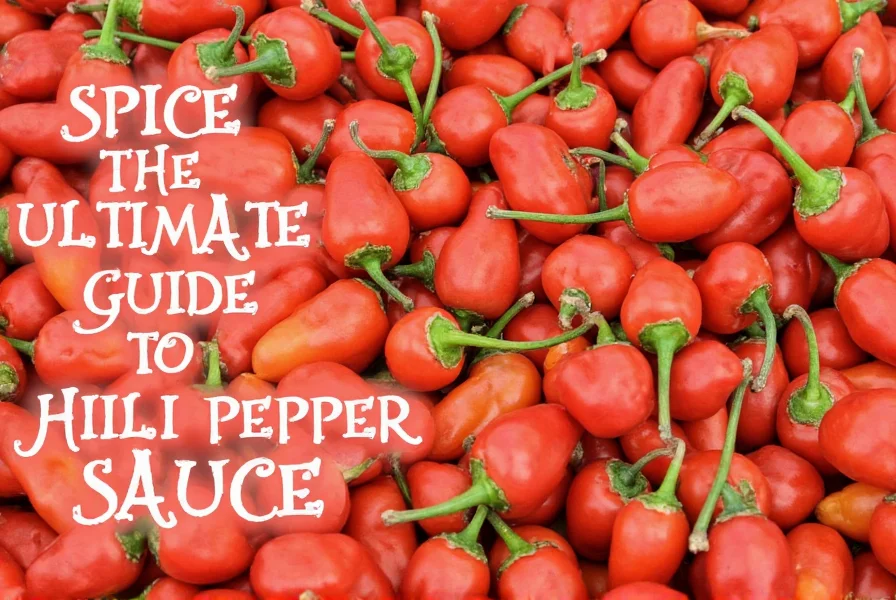
Hot Chili Pepper Sauce Buying Guide: What to Look For
Whether you’re shopping for your pantry or picking up a gift for a spice lover, here’s how to choose the right sauce:
| Product | Heat Level | Flavor Profile | Best For | Notable Features |
|---|---|---|---|---|
| Tabasco Original Red | Moderate | Vinegar-forward, tangy | Cocktails, sandwiches, omelets | Aged in oak barrels |
| Huy Fong Sriracha | Medium-Hot | Garlicky, sweet-spicy | Everything from noodles to burgers | Iconic rooster logo, versatile use |
| Cholula Classic | Medium | Smoky, earthy | Guacamole, tacos, grilled meats | Unique blend of 3 peppers |
| Trinidad Moruga Scorpion Sauce | Extreme | Intense, fruity burn | Experienced spice lovers, dares | One of the hottest sauces available |
| Tapatío | Mild-Moderate | Smooth, slightly salty | Southwest dishes, burritos, rice | Favorites among Tex-Mex fans |
Buying Tips:
- Check the ingredient list: Less is more! Look for recognizable items like peppers, vinegar, and spices.
- Consider flavor balance: Does it complement the dish or overpower it?
- Look at usage scenarios: Is it for everyday cooking or occasional kicks?
- Read reviews: Other users can give great insights into the real-world performance of the sauce.

Conclusion: Fire Up Your Flavors Today!
From enhancing your favorite meals to becoming a centerpiece of conversation (and maybe tears), hot chili pepper sauce is a kitchen staple worth exploring. Whether you prefer a gentle nudge or a full-blown inferno, there's a sauce out there for everyone.
Now that you know the basics, it’s time to experiment. Try new brands, mix flavors, or even create your own signature sauce. Remember, the best sauce isn’t necessarily the hottest—it’s the one that makes your heart race and your taste buds sing.
So go ahead… dare to dip, drizzle, and devour. Your palate will thank you!
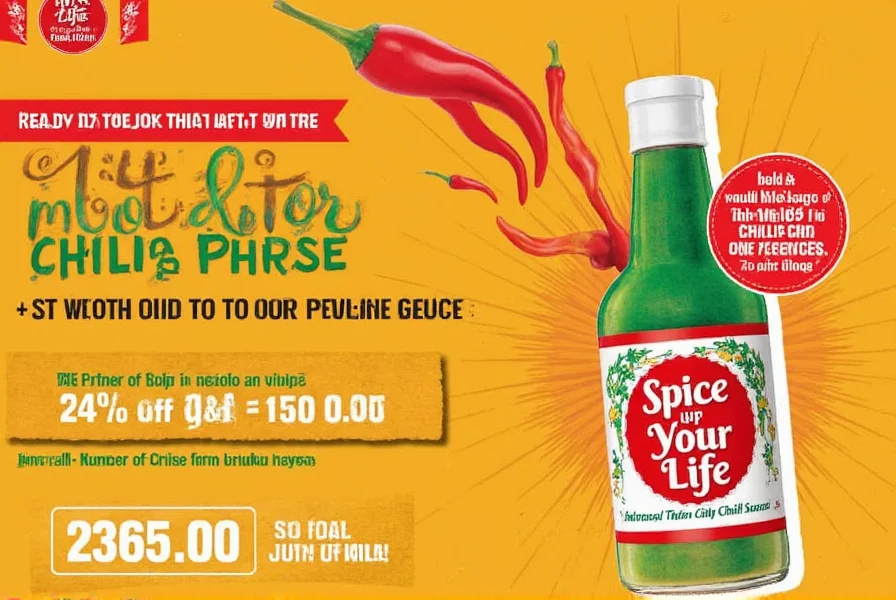

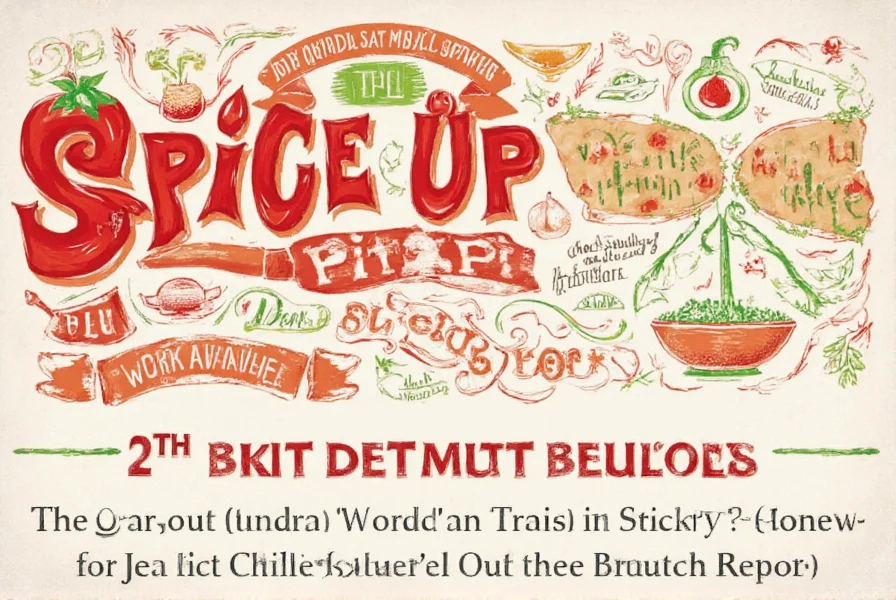









 浙公网安备
33010002000092号
浙公网安备
33010002000092号 浙B2-20120091-4
浙B2-20120091-4